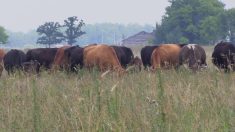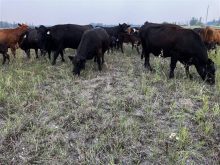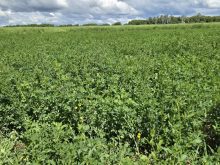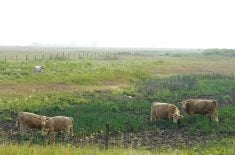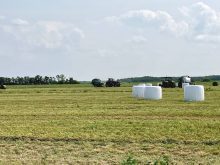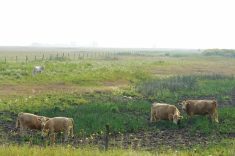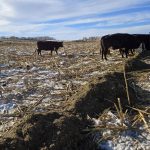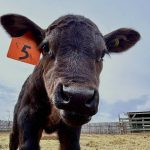Some dairy farmers are concerned their wells will run dry as drought persists, says Dairy Farmers of Manitoba (DFM).
Nineteen per cent of dairy farmers in a late-July DFM survey said they were worried about their water supply, said DFM chair David Wiens.
“One of the comments was that the farm expects to run out of water within the next three to four weeks,” Wiens told the Co-operator.
The farm dug some well test holes, but these weren’t promising, Wiens added. Another farm is planning to drill an additional two or three wells at between $10,000 and $15,000 each.
Read Also
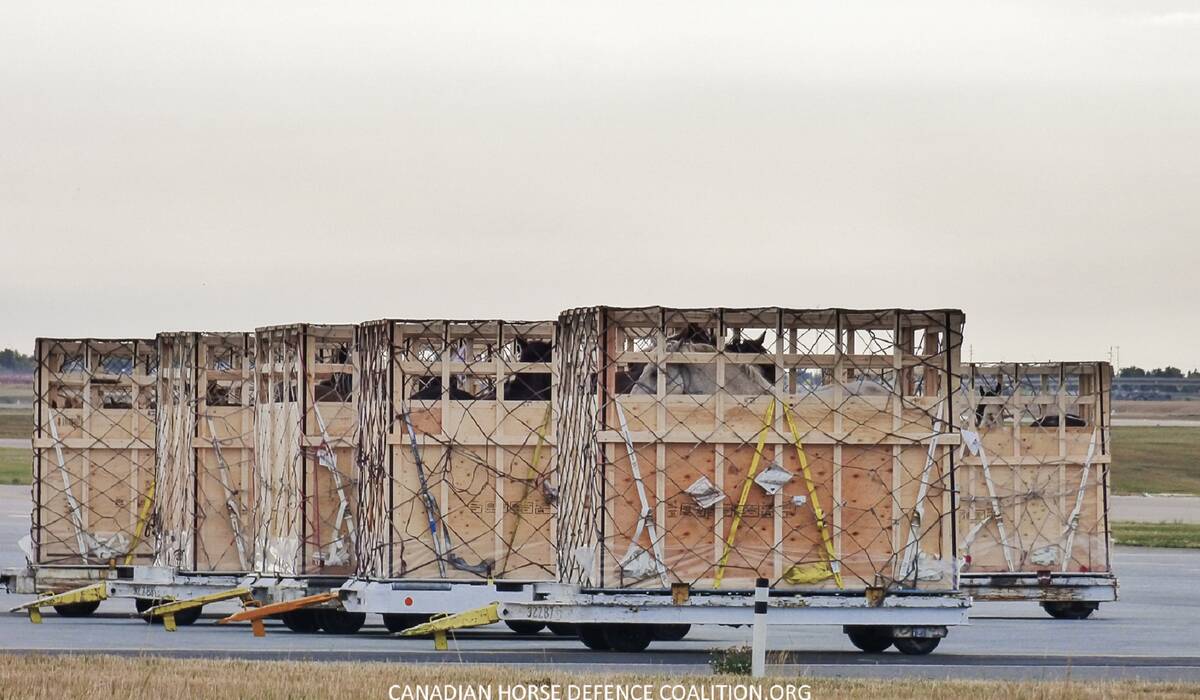
Horse welfare trial begins in Manitoba
Private prosecution of Manitoba horse farm, based on a 2022 horse export shipment, awaits judge’s verdict after two-day trial in Winnipeg.
Water level concerns came from across Manitoba, but were concentrated in the central region, said Wiens. This includes the RMs of Rhineland and Stanley, Morden, Winkler and Portage la Prairie.
The City of Morden instated a drought response plan in May and continues to restrict water use, according to the community’s website.
Jill Verwey and family run a mixed farm, including dairy and beef cattle south of Portage la Prairie. The water table is historically high in the area, she said, but they’re beginning to be concerned about their supply.
“The well levels are significantly lower,” she said.
In fall, they may look at either deepening their main farm well or digging a large dugout to secure their water stock, Verwey said. They’ve already deepened dugouts in their pastures, she said.
If water runs dangerously low, “the question becomes, what do you do at that point?” said Wiens.
The surveyed farmer whose well was running imminently dry wrote, “‘Please help, if possible,’” said Wiens. “You can kind of hear the sense of desperation because really when farms come to that point, doesn’t matter what kind of farm it is, but that is the end of the line at that point.”
DFM’s catastrophe policy allows farmers to apply for permission to temporarily relocate their herd and their quota to another farm, or to temporarily suspend their quota for up to six months.
But moving cows isn’t simple, said Wiens. For one, there aren’t many empty, working dairy farms sitting around. Secondly, the move would stress cattle and drop production.
Farmers short on feed will likely be culling aggressively this year, said Verwey.
As with beef cattle farmers, dairy farmers are struggling to source feed and forage for the winter, said Wiens. Sixty per cent of the surveyed farmers said they either did not have enough feed or weren’t sure yet.
“We were quite struck by the high number,” Wiens said.
Forage quality will be a concern, said Wiens. He said on his own farm, at least one cornfield hasn’t developed enough to use for grain corn and will be converted to silage.
“It’s not going to make any kind of super production kind of feed,” he said.
While cereal crops might have been repurposed for greenfeed earlier this summer, MASC incentives to that end didn’t come in until many of those fields were too dry, said Wiens.
Verwey said her farm has grown or secured enough feed for the winter. About two-thirds of their corn silage is under irrigation and is looking OK. They also had carry-over from 2020. If drought persists into next year it could be a different story, she said.
Like beef cattle producers, dairy farmers face high feed costs. Supplement prices have risen substantially since last winter, Wiens said. The price farmers are paid for milk hasn’t risen to match these costs as the cost-of-production portion of the price is determined by a national average.
“Whatever kind of difficulties we have here is not going to move the needle nationally,” he said.
Farmers will be working with “reduced margins, maybe no margin, or maybe actually negative margins,” Wiens said.
Provincial and federal aid through AgriRecovery has been announced, including toward feed, freight and water costs. At time of writing, details were scant. Wiens said it wasn’t yet clear if dairy farmers would be included in those programs.
Along with a call to repurpose failed crops, Wiens said DFM has called on the province to not allow risk management programs to penalize farmers for repeated years of drought, which have seen margins repeatedly decrease over the past few years.




